React Native Development FAQs
Get answers to key questions about React Native, from setup and state management to optimization and deployment. This guide helps developers build efficient, cross-platform apps.
What is React Native, and why should I use it?
React Native is a framework developed by Facebook for building cross-platform mobile apps using JavaScript and React. It allows you to write one codebase for both iO
Is React Native a good choice for my app development project?
Yes, React Native is ideal for startups and small to medium-sized projects due to its rapid development, shared codebase for iOS and Android, and extensive community support. For highly complex apps requiring advanced native features, you may need to assess if React Native meets your specific needs.
How much does it cost to develop an app using React Native?
The cost depends on the app's complexity, features, and the development team’s location. In India, React Native development costs are generally more affordable compared to other regions. Basic apps can start from ₹50,000–₹1,00,000, while more complex applications can range from ₹2,00,000–₹10,00,000 or more.
How long does it take to develop an app with React Native?
The development timeline depends on the app's complexity. Simple apps can take around 1–3 months, while more complex apps with custom features may take 4–6 months or longer. Using React Native helps speed up development due to the shared codebase for iOS and Android.
Can I use existing code in my React Native app?
The development timeline depends on the app's complexity. Simple apps can take around 1–3 months, while more complex apps with custom features may take 4–6 months or longer. Using React Native helps speed up development due to the shared codebase for iOS and Android.
How do I maintain app performance in React Native?
To optimize performance, use techniques like avoiding unnecessary re-renders, using FlatList for lists, optimizing images, and leveraging native modules for resource-heavy tasks. Profiling tools like React DevTools and Flipper can help you identify and fix performance issues.
Can React Native handle complex animations?
Yes, React Native supports complex animations through the Animated API and React Native Reanimated library. These tools enable smooth, native-like animations that enhance the user experience.
What are the common challenges in React Native development?
Common challenges include dealing with platform-specific code, managing dependencies and libraries, performance optimization, and integrating third-party plugins. React Native has a strong community that helps solve many issues, but some problems may still require custom native development.
What tools can I use to test my React Native app?
Use Jest for unit and snapshot testing, React Native Testing Library for component testing, and Detox for end-to-end testing. These tools help ensure your app is stable and performs well across different devices.
How can I update my React Native app without resubmitting it to the app store?
You can use CodePush, which is part of App Center, to push over-the-air (OTA) updates directly to your app. This lets you update JavaScript code and assets without needing to go through the app store approval process.
Is it possible to integrate third-party libraries in React Native?
Yes, React Native supports integration with a wide range of third-party libraries for added functionality like navigation, state management, and more. Ensure the library is well-maintained and compatible with your React Native version.
What is the difference between React Native and Flutter?
React Native uses JavaScript, while Flutter uses Dart. React Native has a larger community and more mature ecosystem, whereas Flutter offers a single rendering engine, which can result in smoother animations and more consistent UI performance.
Can React Native be used for building AR/VR applications?
Yes, React Native can be used to build AR/VR applications with the help of libraries like ViroReact. However, for high-performance AR/VR experiences, specialized tools or native development might be needed.
How secure is a React Native app?
React Native apps can be secure if best practices are followed, such as using secure storage solutions like react-native-keychain, avoiding hardcoded sensitive data, and keeping libraries and dependencies up to date to patch vulnerabilities.
Do I need to learn Swift/Objective-C or Java/Kotlin to work with React Native?
No, React Native allows you to build apps using JavaScript. However, having basic knowledge of Swift/Objective-C (iOS) or Java/Kotlin (Android) can be helpful when integrating native modules or troubleshooting platform-specific issues.
Can React Native apps be published on both iOS and Android?
Yes, one of the main benefits of React Native is the ability to write a single codebase that can be compiled and deployed on both iOS and Android, saving time and resources.
OrgoDigital represents a seamless fusion of “Organic” and “Digital” growth in the realms of technology and digital marketing. From crafting dynamic websites and high-performing apps to implementing data-driven marketing strategies, we focus on creating sustainable growth while delivering exceptional value to our clients.
Our Services
Contact Us
Useful Links
©2024. Orgo Digital. All Rights Reserved.



